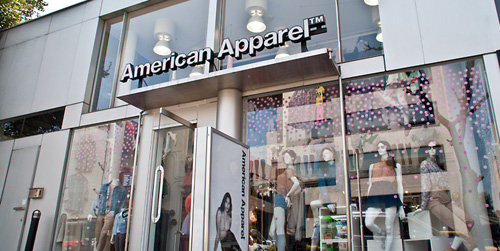Will Team Biden Weaponize Workers’ Pensions?
Big Labor abuse of worker pension and benefit funds as a means of advancing union bosses’ self-aggrandizing policy objectives is a familiar phenomenon.

Like President Donald Trump, Daily Caller commentator Joanne Butler, an economist and a former U.S. House Ways and Means Committee staffer, is bullish on the future of manufacturing in America, even in historically low-margin industries like clothing.
But in a recent column (see the link below to read the whole thing), Butler emphasized that, in order to succeed while making goods domestically, firms need to consider carefully where they site their facilities. “Some states,” wrote Butler, “are much more business friendly than others, resulting in competitive prices for a firm’s final product.”
Butler’s case study of what not to do is American Apparel. This 28-year-old company filed for bankruptcy for the second time last November, and in January its intellectual property was acquired by Gildan Activewear. Because Gildan opted not to buy any of American Apparel’s retail stores, they have all since been closed. What went wrong?
American Apparel boasted its clothing was made in Los Angeles. That might sound sexy to fashion magazine writers, but [from an economist’s perspective], it was a horrible location. California’s not a right-to-work state, and has a mountain of regulations regarding wages and working conditions.
Butler might have added that forced-unionism California’s lack of competitiveness in manufacturing is by no means a consequence of generous paychecks for employees. Indeed, when interstate cost-of-living differences are taken into account, annual manufacturing compensation per employee (including the cash value of benefits like health insurance as well as wages, bonuses and salaries) in the Golden State is more than $4400 lower than the average for Right to Work states.
The real problem is that compulsory unionism in states like California empowers Big Labor to push successfully for higher taxes and more red tape, rendering businesses less profitable and workers less productive. And unionized factories are typically hamstrung by counterproductive Big Labor work rules and hate-the-boss class warfare.
Like American Apparel, companies like Gildan and American Giant (the latter best known for its “upscale” hoodies) make clothes domestically, but today they do the lion’s share of their manufacturing in Right to Work states. In February 2015, American Giant CEO Bayard Winthrop told business reporter Andrew Rice that, over the course of the past two years, his company had moved “the vast majority of his production line” to Right to Work North Carolina and Right to Work South Carolina.”
Had American Apparel made the same decision soon enough, concluded Butler, it might “still be in business today. . . . The lesson of American Apparel versus American Giant is: when it comes to U.S. manufacturing, not all states are created equal.”

Big Labor abuse of worker pension and benefit funds as a means of advancing union bosses’ self-aggrandizing policy objectives is a familiar phenomenon.

What impact does handing a union monopoly power to deal with your employer on matters concerning your pay, benefits, and work rules have on your pay?

Federal Labor Board has now certified majority decertification vote to end AFT union officials’ “representation” at KIPP Charter High School